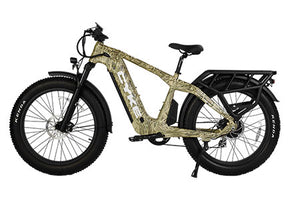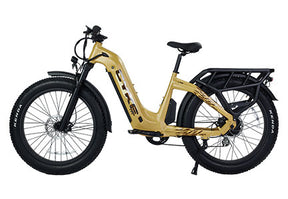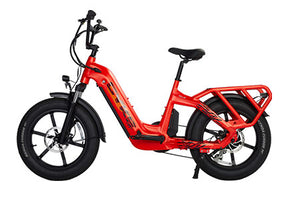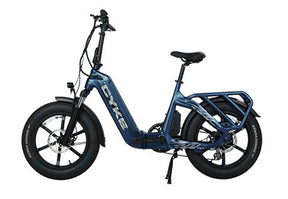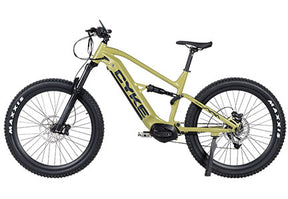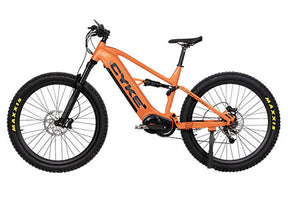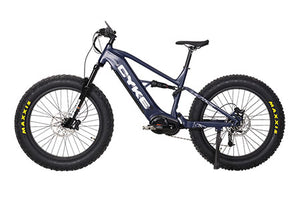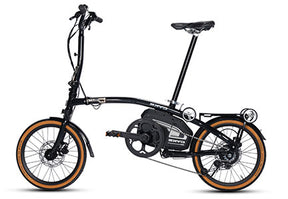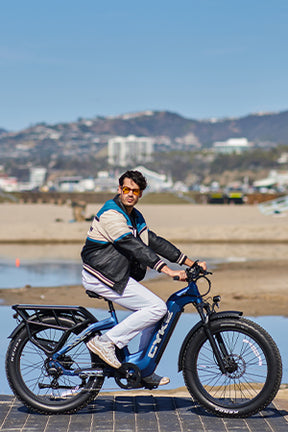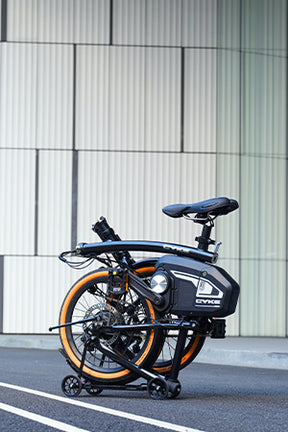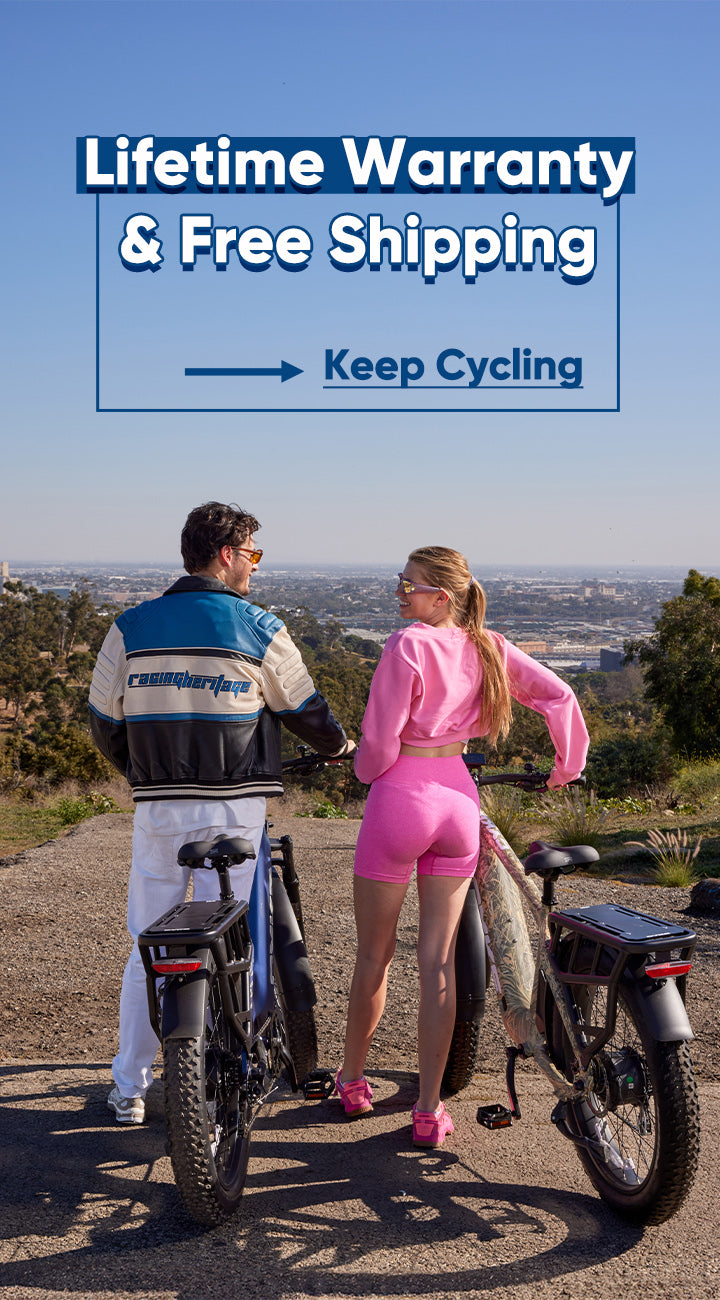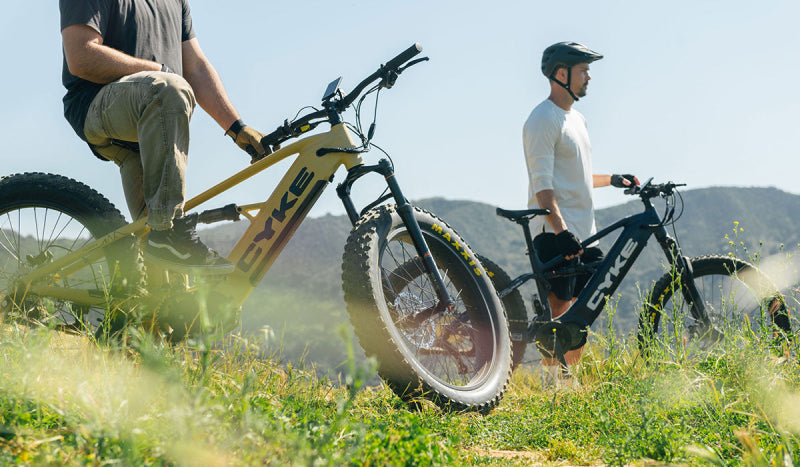Featured in this posts
E-Bike Eco Certification Guide: Why It Matters More in 2025
The world of e-bikes is moving faster than ever. What started as a simple way to make pedaling easier has become something bigger. Today's riders want more than just a battery and motor. They now want safety and eco-friendly assurance too.
This is where e-bike eco certification steps in. Think of it like a report card for your bike. It indicates whether the bike has passed important safety tests and whether the company manufacturing it prioritizes environmental concerns.
As we move through 2025, these certificates are becoming the new normal. Smart buyers look for them before spending their money.
What Are Eco-Certifications in the E-Bike Industry?
When shopping for an e-bike, you may notice small stickers or badges with codes like UL, CE, or TÜV. These are certifications that specify how the bike was tested and what standards it meets.
Broadly, e-bike certifications fall into two categories: safety and sustainability.
E-bike safety certifications focus on protecting the rider from overheating risks, short circuits, and other potential electrocution hazards. For example, the UL 2849 e-bike standard tests the complete electrical system.
Meanwhile, UL 2271 sets specific standards for battery safety, ensuring that lithium-ion batteries carrying the UL mark have undergone rigorous testing. When undamaged, they can be trusted to perform safely over their lifetime.
CE (Conformité Européenne) certification is mandatory for all e-bikes sold within the European Union. To earn the CE mark, e-bikes must pass several key standards, including
- EN 15194 – Electric-assisted bicycle standard
- EN 50604-1 – Battery safety
- EN 55014 – Electromagnetic compatibility (EMC)
- EN ISO 12100 – Mechanical safety
Beyond rider safety, there are also eco-certifications, which highlight a company’s environmental responsibility. The ISO 14001 certification sets clear guidelines for reducing environmental impact by improving resource efficiency, minimizing waste, and preventing risks during manufacturing.
The Green Product Mark from TÜV Rheinland and SGS Environmentally Evaluated Mark ensures both safety and environmental standards. They measure energy efficiency, CO2 footprint, repairability, material sourcing, recycling potential, longevity, and social compliance.
CYKE's Commitment: TÜV-Certified Under UL 2849
One brand leading this shift is CYKE. All their e-bikes undergo rigorous testing by TÜV Rheinland to the UL 2849 standard and achieve certification, which is one of the strictest safety standards in America.
So, what makes this important?
UL 2849 is a complete safety standard designed by Underwriters Laboratories (UL). It covers the entire electrical system of an e-bike: the battery, motor, controller, and charger. Each part must work safely together and withstand demanding conditions.
The motor is tested under extreme stress. The battery is charged and discharged hundreds of times. Even the charger gets tested to make sure it won't overheat or cause problems with your home's electrical system.
Now, why does TÜV certified e-bike status matter so much?
TÜV Rheinland’s evaluations provide consumers with a globally recognized, third-party assurance of quality, safety, and sustainability. When you see a TÜV-certified e-bike, you know it has passed rigorous, third-party testing that’s recognized worldwide. CYKE can't just claim their bikes are safe. They have to prove it to an international authority to confirm it.
For riders, this translates to peace of mind. A TÜV and UL-certified bike isn’t just about performance, it’s about knowing your ride is safe, reliable, and eco-friendly. CYKE didn’t chase the cheapest option. They invested in meeting the highest standards, proving that they care about building bikes the right way.
Why Eco-Certifications Are Becoming Essential
Times are changing. Five years ago, most people buying e-bikes just wanted something that worked.
Now, buyers ask harder questions. Where do the batteries come from? Can they be recycled? Is the company really as green as they claim?
Insurance companies care about certificates, too.
The National Fire Protection Association (NFPA) recommends buying only e-bikes or other electric devices that are certified by a nationally recognized testing lab and properly labeled.
Cities are paying attention too. In New York City, officials have passed a law requiring every electric bike sold to meet safety certificates. Europe has similar rules. Without the right paperwork, you can't even sell your bikes in these markets.
Even in places without regulations yet, the direction is clear. More policies will likely move toward making UL certification mandatory. Eco-certifications are no longer optional, they’re becoming the new standard for safety and trust.
Key Eco-Certifications Riders Should Look For
UL 2849 (U.S.)
The UL 2849 is America's gold standard for e-bike safety. What makes it special is its focus on the complete electrical system. The motor, battery, controller, and charger must work with each other. This whole-system approach catches problems that single-part testing might miss.
CE & EN15194 (Europe)
If you see a CE mark, that bike meets European standards, including EN 15194. To comply with EN 15194, an e-bike must meet strict rules. The motor can’t provide more than 250W of continuous power, and it has to stop giving assistance once you reach 25 km/h or stop pedaling.
On top of that, the bike must pass tough electrical and mechanical safety tests. It also has to follow ISO 4210, the standard used for traditional bicycles, to make sure the frame and components are safe and reliable.
TÜV / SGS Green Mark
The TÜV Rheinland Green Product Mark is an eco-label for e-bikes. It looks at the entire life cycle of a product to measure its environmental impact. For riders, it’s a simple way to know that the bike they’re choosing was designed with sustainability in mind.
SGS also offers a range of Green Marks, each focusing on a specific environmental feature. For e-bikes and their components, manufacturers can pursue certifications such as, bio-based content, hazardous substances assessed, product carbon footprint, and recycled resources.
ISO 14001
This certificate focuses on environmental management systems. Companies with ISO 14001 show that it is serious about reducing waste, energy use, and emissions. For a sustainable e-bike, this certification is a strong indicator of long-term commitment.
The Buyer's Perspective in 2025
Today's e-bike shoppers do their homework. They compare certificates like they compare prices. A sustainable e-bike isn't just marketing speak anymore. Buyers expect real proof.
Smart shoppers know that e-bike eco certification protects their investment. Certified bikes hold their value better. If you want to sell your bike later, having the right paperwork makes it easier. Some used bike shops won't even accept bikes without proper certification.
In 2025, more riders will ask:
- Does this bike meet the UL 2849 e-bike standard?
- Is it a TÜV certified e-bike?
- Can it truly be called a sustainable e-bike 2025?
The answers will guide purchases just as much as speed, motor power, or battery range.
The Business Impact for Brands and Dealers
For bike companies, eco certification has become a business necessity. Major retailers won't stock bikes without proper testing. Amazon requires UL certification for all e-bikes sold on its platform. Without it, you're locked out of the biggest online marketplace.
Dealers can market certified bikes with greater confidence, knowing they meet strict safety and eco guidelines. It turns a simple sale into a consultative experience.
Liability concerns drive certification, too. If an uncertified bike causes a fire, everyone in the supply chain could face lawsuits. Insurance companies may refuse coverage for shops selling uncertified bikes. The business risk of cutting corners has become too high.
The sustainable e-bike 2025 trend creates opportunities for premium pricing. Customers are willing to pay a premium for certified eBikes. This extra margin helps cover the cost of testing and allows for better components. Quality creates a positive cycle that benefits everyone.
Looking Ahead: The Future of Sustainability in E-Bikes
The next few years will bring even stricter standards. Battery recycling programs are becoming mandatory in several states.
By 2028, California will require all non-certified e-bikes to be removed from service.
Starting in 2026, every new e-bike, battery, and charging system will need to clearly show two things:
- The name or logo of the accredited testing lab that approved it
- The specific certification standard the product complies with
For riders, this means it will be much easier to see at a glance whether an e-bike is properly tested and certified for safety.
New certificates are emerging for carbon footprint tracking. Soon, buyers might see labels showing exactly how much CO2 was produced by making their bike. This transparency will push manufacturers to find cleaner production methods.
Conclusion
With e-bike eco certification, the e-bike industry is entering a new chapter where eco and safety certifications matter as much as design and performance.
As we navigate through 2025, these certificates tell us which companies take their responsibilities seriously. They separate real innovation from empty promises. For buyers, they provide confidence that their investment is safe, reliable, and truly sustainable.
Choosing a properly certified e-bike isn't just about following rules. It's about supporting companies that do things right. Most importantly, it's about protecting yourself and your family.
